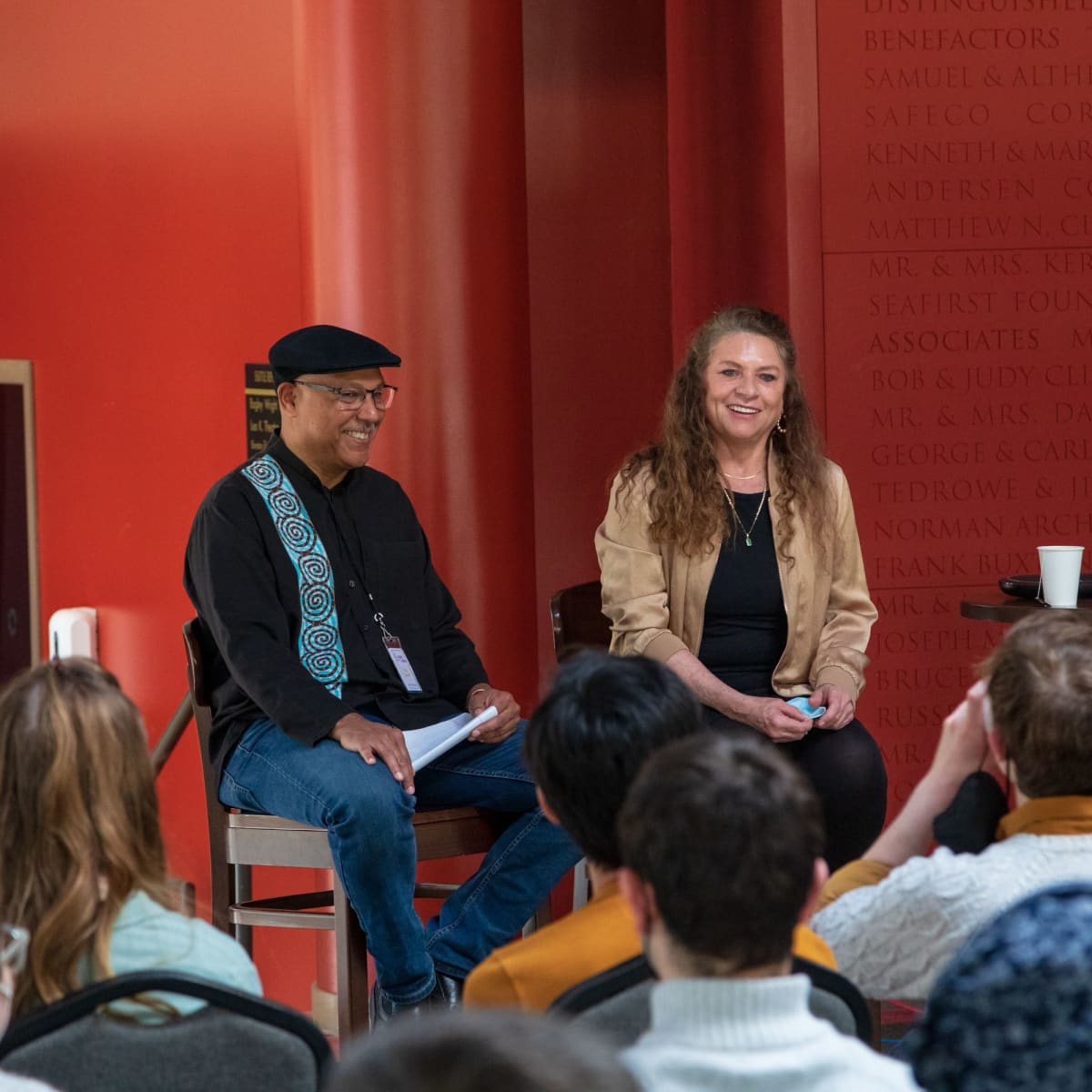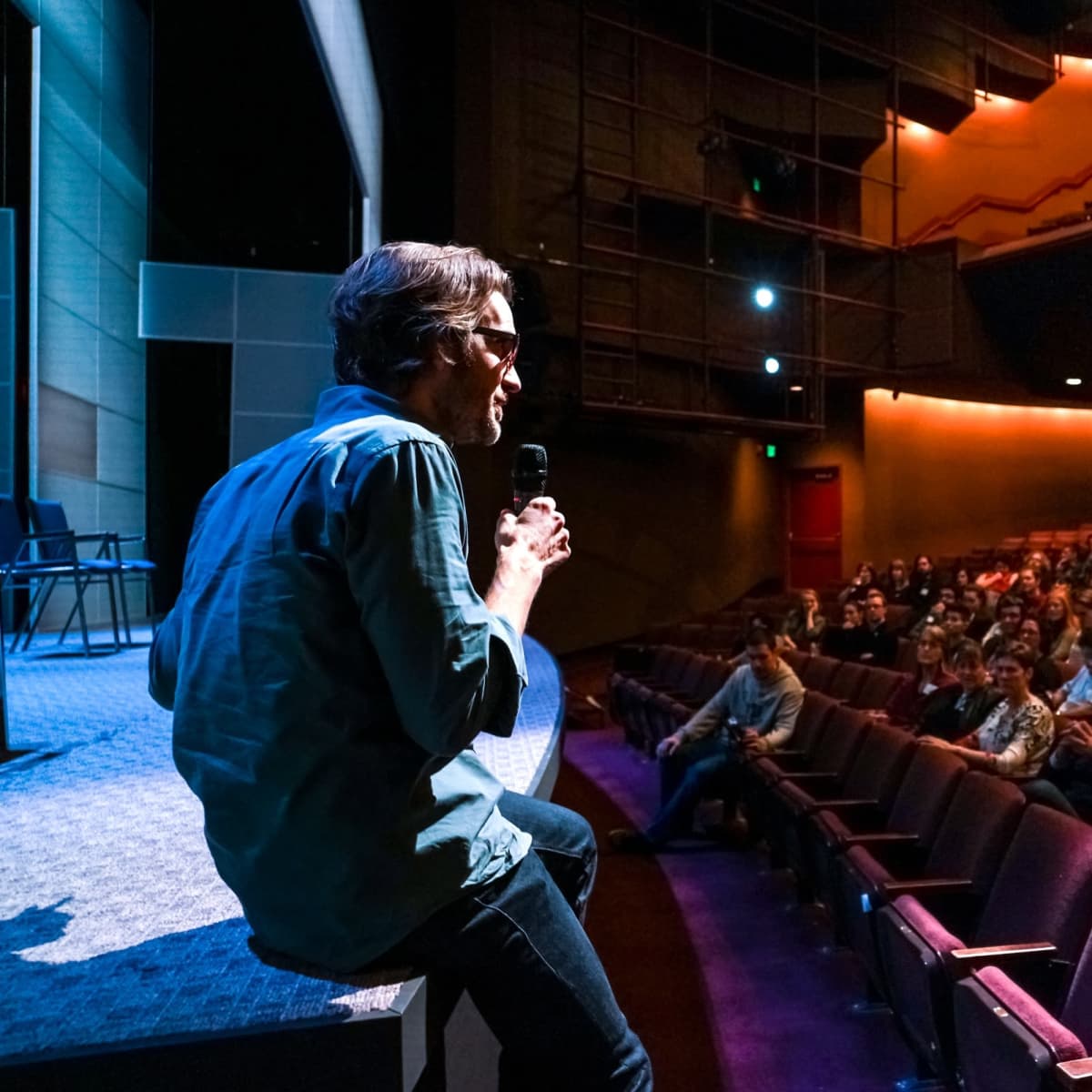Article
Ruben Santiago-Hudson, Wilsonian Warrior
Jitney director Ruben Santiago-Hudson has been described as one of the “master interpreters” of August Wilson’s works. A multi-faceted and multi-award-winning theater maker, Santiago-Hudson has been involved as an actor or director in all of Wilson’s works and credits Wilson for being “largely responsible” for his career.
As an actor, Santiago-Hudson won the 1996 Tony Award for his performance as Canewell in Wilson’s Seven Guitars, which he originated on Broadway, and he also originated a role in the playwright’s Gem of the Ocean. Wilson entrusted him to perform How I Learned What I Learned, Wilson’s autobiographical one-man show, in the years following the playwright’s passing in 2005. Having directed many of Wilson’s plays and been a personal friend of the playwright, Santiago-Hudson was a driving force behind Manhattan Theatre Club’s production of Jitney, the last of Wilson’s plays to appear on Broadway.
ON WILSON’S WORKS:“In [August Wilson’s] plays, we get to see and feel the spirit and electricity of people in this community navigating this landscape called America. It’s a beautiful thing to watch us—and by us I mean Black folk—work it out, because we don’t get to see that on TV, film, and rarely onstage. Everything contained in life is contained in his plays, and in Black culture.”(American Theatre Magazine) |
ON DIRECTING:"The way I direct August Wilson, I'm not trying to explain my people to you. I want you to experience them the same way I experience Fiddler on the Roof. The same way I experienced David Henry Hwang's Kung Fu, the same way I experience any other culture. I just want to sit there and be inundated by something that I really don't know every day externally, and internally, something I know every day. Relationships." (KPBS) “Art should reflect the times, art should be a catalyst for change…it should be a catalyst for enlightenment and enrichment in your life, because you all of a sudden know more about human beings; know more about the people that you don’t get up in the morning and see in your kitchen and have breakfast with, or the person who you pass on the street. Art brings you into that person’s realm. That’s why when I direct Jitney, what happens up there happens to the people up there. I don’t have my actors present it to you, I have you come in and witness and experience what happens.” (PBS American Masters Podcast) |
ON JITNEY:“Jitney is important to today’s audiences and yesterday’s audiences and tomorrow’s audiences… We’re watching these two love stories clashing and passing each other. It’s the opportunity to see people of color wanting, needing, and achieving everything that’s called the American Dream, people of color trying to attain the most simple of lives and values—justice, liberty, freedom. That’s the conflict—that’s the challenge we’re facing from the minute we were thrown on this soil.” (Center Theatre Group) “I would like for audiences to come in and see [Jitney] and not only be entertained but enlightened. I want them to feel the jolt, vibrancy, and electricity of African American life. How we fight our fights and how we win. How we stand our own ground, and we’re not talking Florida stand your ground, we’re talking about integrity as human beings, as people. I want people to experience the dignity of the community.” (Center Theatre Group) |
Sources
- American Theatre Magazine: “Ruben Santiago-Hudson Takes ‘Jitney’ on the Road”
- Center Theatre Group: “An Opportunity to Celebrate”
- Deadline: “Tony Watch: Ruben Santiago-Hudson On His August Wilson Passion Project, ‘Jitney’”
- DC Metro Theater Arts: “Ruben Santiago-Hudson on Directing August Wilson’s ‘Jitney’”
- KPBS: “August Wilson’s Jitney Depicts the Mundane And Finds Something Profound”
- New York Public Radio: “…Exclusive Audio Recordings of August Wilson's American Century Cycle available for streaming”
- Newsday: “Ruben Santiago-Hudson talks ‘David Makes Man,’ August Wilson and ‘Long Island Confidential’”
- PBS American Masters Podcast: “Ruben Santiago-Hudson on playwright August Wilson”
- Playbill: “How August Wilson Made Ruben Santiago-Hudson’s Career”




